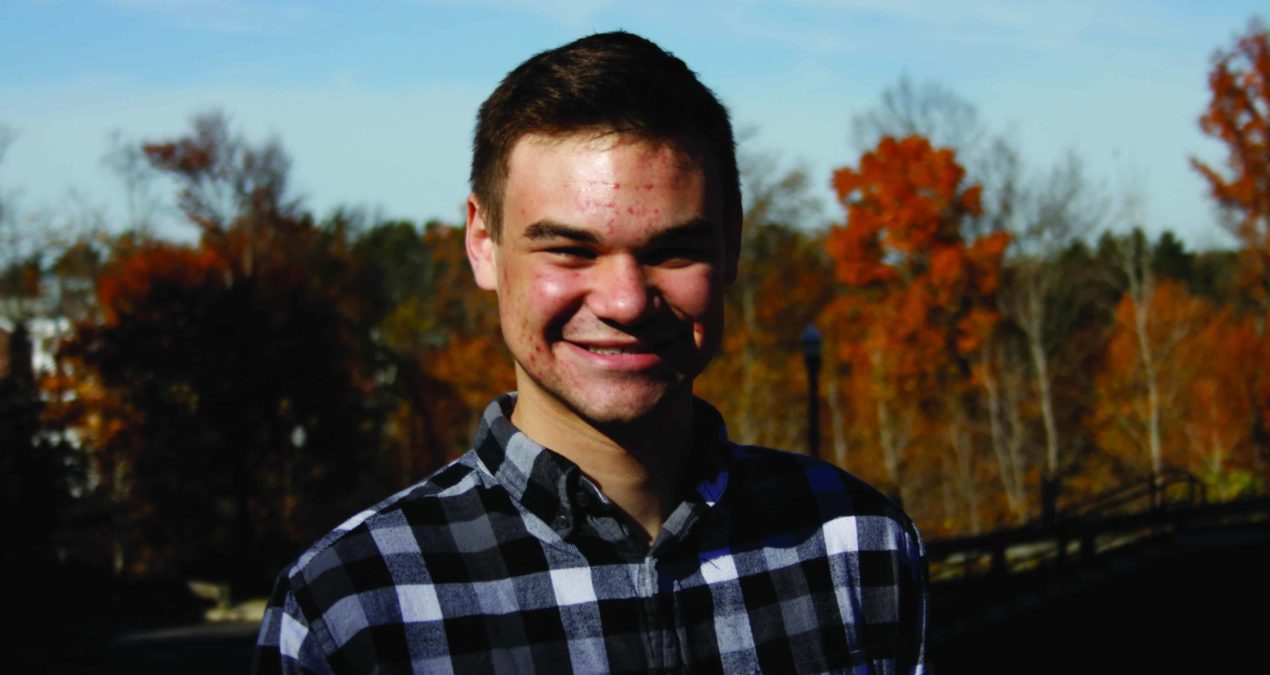NEIL RILEY ‘17
Editor-in-Chief
I come from a family of football fans. For me, fall will always be pickup games in the front yard with my older brothers, Mom’s kidney bean-heavy chili, and the familiar sting of disappointment in our Bengals and Browns.
While my playing days ended almost as soon as they had begun, my watching days ended only recently. I already know that this week, the most commonly asked question for me will be “did you catch the Superbowl this weekend?”
Once again, this year, I will have to answer “no.” It is not because I hate sports, or even that I was particularly busy on Sunday. I missed one of the most anticipated and most-watched events of the year because I feel guilty every time I sit down to watch football.
The average professional football game features a host of massive, helmeted and padded men chasing each other around trying to tear each other’s heads off.
It truly is our modern version of gladiator fighting. At times, it feels like the crowd and the viewers at home are simply watching grown men give each other brain damage for three hours.
Most football fans have heard stories about players like Junior Seau. The 10-time All-Pro linebacker’s suicide hit the league hard and forced many to consider the adverse effects of concussions and other injuries that are so common with football players.
Even considering all of the conditions that players face, some would argue that their exorbitant salaries help cover the risks. Essentially, they are trading millions of dollars for brain cells.
This argument simplifies the issue. It fails to account for the racial dimension. According to the Institute for Diversity and Ethics in Sports,’ “2014 NFL Racial and Gender Report Card,” 67.3 percent of players in the NFL were black, while 31 percent were white.
This statistic is even more astounding when one realizes that there has yet to be a black owner of an NFL team. For me, something about those numbers feels a little out of place.
Week in and week out, mostly black players sacrifice their bodies and minds for the world’s entertainment while the billions of dollars in advertising, tickets, merchandising and concession revenues go mostly to the white owners and operators of the teams, who sacrifice very little by contrast.
It is no coincidence that my disgust with the NFL, in particular, came after I had begun taking liberal arts classes at Denison. In my sociology class and my feminism class, I was forced to step out of my comfort zone and see my world through a different lens. I had to acknowledge my many privileges and consider the institutes that allow them to persist.
I am by no means calling those who are involved or enjoy the NFL racist, but I feel it is important to acknowledge the situation and ask why it exists.
For me, situations like these have been where I have truly found the value of my liberal arts education. Thus far, Denison has equipped me with the knowledge to ask, to think with depth, to critically evaluate the world around me and to ask the questions that cut to the heart of the issues at hand.

